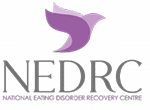NEDRC offer Over Exercising Compulsive Exercising Treatment Ireland
Compulsive exercise is not a recognized clinical diagnosis in the DSM-5, but many people struggle with symptoms associated with this term. If you are concerned about your or a loved one’s relationship with exercise, please speak with a treatment professional at NEDRC, based in Dublin, Ireland.
WARNING SIGNS & SYMPTOMS OF COMPULSIVE EXERCISE
- Exercise that significantly interferes with important activities, occurs at inappropriate times or in inappropriate settings, or when the individual continues to exercise despite injury or other medical complications
- Intense anxiety, depression, irritability, feelings of guilt, and/or distress if unable to exercise
- Maintains excessive, rigid exercise regimen – despite weather, fatigue, illness, or injury
- Discomfort with rest or inactivity
- Exercise used to manage emotions
- Exercise as a means of purging (needing to “get rid of” or “burn off” calories)
- Exercise as permission to eat
- Exercise that is secretive or hidden
- Feeling as though you are not good enough, fast enough or not pushing hard enough during a period of exercise; overtraining
- Withdrawal from friends and family
HEALTH CONSEQUENCES OF COMPULSIVE EXERCISE
- Bone density loss (osteopenia or osteoporosis)
- Loss of menstrual cycle (in women)
- Female Athlete Triad (in women)
- Relative Energy Deficiency in Sport (RED-S)
- Persistent muscle soreness
- Chronic bone & joint pain
- Increased incidence of injury (overuse injuries, stress fractures, etc.)
- Persistent fatigue and sluggishness
- Altered resting heart rate
- Increased frequency of illness & upper respiratory infections
Treatment for Exercise Addiction includes
- Refraining from exercise for a period of time to regain a balanced lifestyle and identify underlying issues
- Counseling from qualified treatment professionals on developing healthier coping skills and tools to lead a more balanced life
- Working with a physiologist or specialist when resuming exercise, to assist in determining a healthy workout schedule, appropriate duration of exercise, etc.
If you or someone you know is exhibiting signs of excessive exercise and/or an eating disorder, eating disorder treatment, including psychotherapy, can help address both the eating disorder and exercise obsession. Cognitive-behavioral therapy, which helps to modify behaviors as well as underlying beliefs about exercise, can help individuals to develop moderation and balance.
If you would like to discuss the concerns you have about a love one, contact NEDRC in confidence. We are happy to listen and guide you through.
NEDRC can help you and your loved one take that vital step to regain a happy, healthy life. Please use the contact details below to find out about our eating disorder treatment options available to you and your loved one. Contact NEDRC
Telephone: 01 564 4450 or Mobile: 087 7755996 / Email enquiries@nedrc.ie
For referrals from Healthcare/ Therapeutic professionals please contact via : referrals@nedrc.ie or healthlink@nedrc.ie or online via Healthlink
Healthmail users can send referrals to healthmail@nedrc.ie














